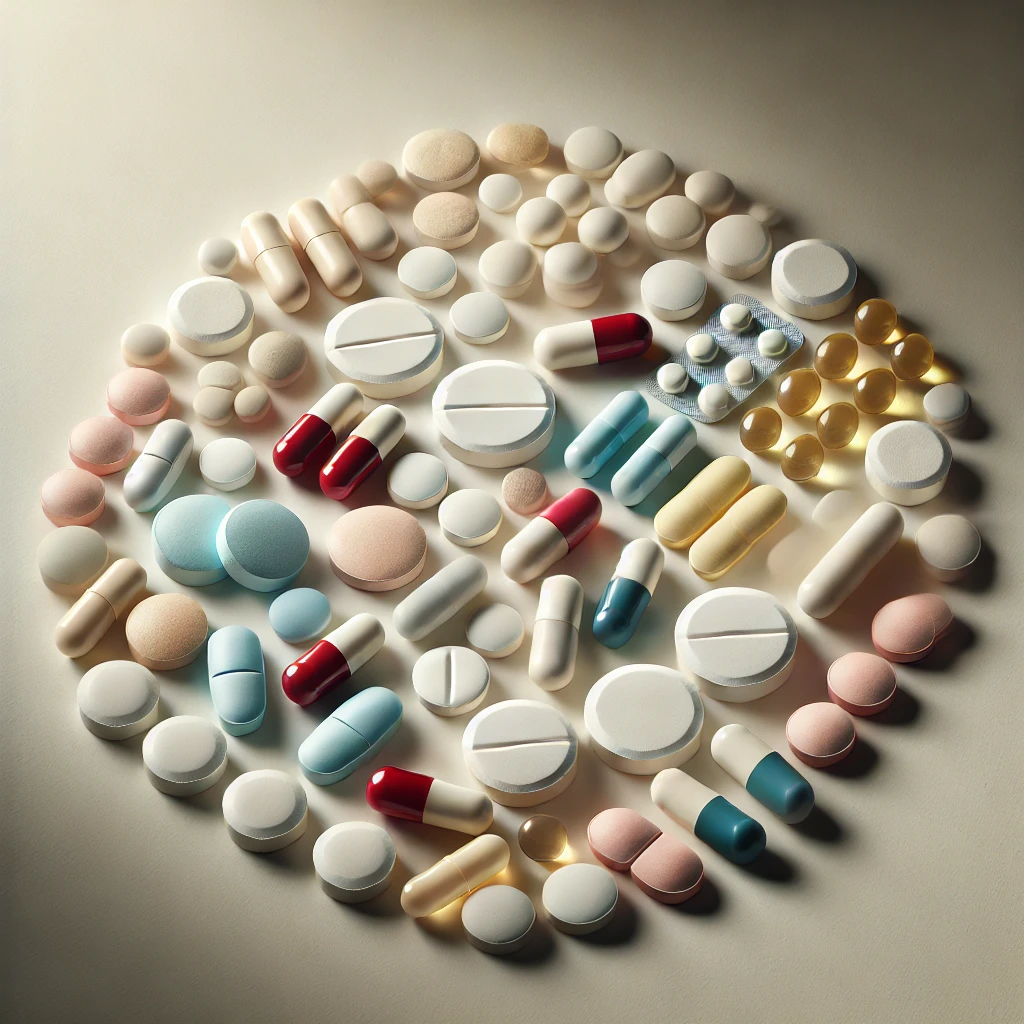High cholesterol is a significant risk factor for cardiovascular diseases, including heart attack and stroke. While a balanced diet and regular exercise are fundamental for managing cholesterol levels, medications may sometimes be necessary. This article will explore what the best medications for cholesterol are, describing the different types of medications available, their mechanisms of action, and important considerations to keep in mind.

Types of Cholesterol Medications
Statins
Statins are the most commonly prescribed medications to lower LDL (bad) cholesterol levels. They work by blocking an enzyme necessary for cholesterol production in the liver.
- Examples: Atorvastatin (Lipitor), Simvastatin (Zocor), Rosuvastatin (Crestor), Pravastatin (Pravachol).
- Effects: Can lower LDL cholesterol by up to 50% and slightly raise HDL (good) cholesterol.
- Side effects: Headaches, muscle aches, digestive problems. In rare cases, they can cause muscle damage or liver problems.
Ezetimibe
Ezetimibe reduces cholesterol levels by blocking the absorption of cholesterol in the small intestine.
- Examples: Ezetimibe (Zetia).
- Effects: Can lower LDL cholesterol by up to 20%.
- Side effects: Digestive issues, muscle pain.
Fibrates
Fibrates are mainly used to reduce triglyceride levels and increase HDL cholesterol.
- Examples: Fenofibrate (Tricor), Gemfibrozil (Lopid).
- Effects: Can lower triglycerides by up to 50% and increase HDL cholesterol.
- Side effects: Muscle pain, gastrointestinal problems, increased risk of gallstones.
PCSK9 Inhibitors
PCSK9 inhibitors are a relatively new class of medications that help reduce LDL cholesterol levels.
- Examples: Alirocumab (Praluent), Evolocumab (Repatha).
- Effects: Can lower LDL cholesterol by up to 60%.
- Side effects: Injection site reactions, flu-like symptoms.
Bile Acid Sequestrants
Bile acid sequestrants lower LDL cholesterol levels by binding to bile acids in the intestine and preventing their reabsorption.
- Examples: Cholestyramine (Questran), Colesevelam (Welchol).
- Effects: Can lower LDL cholesterol by up to 20%.
- Side effects: Constipation, bloating, gastrointestinal issues.
Niacin
Niacin (vitamin B3) can help reduce LDL cholesterol and triglycerides while increasing HDL cholesterol.
- Examples: Extended-release niacin (Niaspan).
- Effects: Can significantly increase HDL cholesterol.
- Side effects: Skin flushing, itching, gastrointestinal problems, increased blood sugar levels.
Important Considerations
Regular Monitoring
It is essential to regularly monitor cholesterol levels and liver function while taking cholesterol medications. This helps ensure the medications are effective and identify any side effects.
Healthy Lifestyle
Even with medication, maintaining a healthy lifestyle is crucial. This includes a balanced diet, regular exercise, avoiding smoking, and limiting alcohol intake.
Personalized Treatment
Treating high cholesterol should be personalized based on the individual’s needs. Doctors consider cholesterol levels, other health conditions, and medication tolerance before prescribing therapy.
Side Effects
All medications can have side effects, and not all patients will respond the same way. It’s important to discuss any unusual or bothersome symptoms with your doctor.
Drug Interactions
Some cholesterol medications can interact with other drugs you may be taking. Make sure to inform your doctor about all medications and supplements you are using.
Conclusion
The best medications for cholesterol vary depending on the individual’s needs and health conditions. Statins, ezetimibe, fibrates, PCSK9 inhibitors, bile acid sequestrants, and niacin are all effective options for managing cholesterol levels. It’s essential to work closely with a doctor to determine the most appropriate treatment and regularly monitor progress. Along with medication, a healthy lifestyle remains a key component in keeping cholesterol levels under control.
We recommend that you read The Truth About Somatic Exercise for Weight Loss & Unveiling the Impacts of Social Media on Mental Health
FAQ
How long does it take to see results from cholesterol medications?
Results can vary, but improvements in cholesterol levels are generally seen within 4-6 weeks of starting treatment.
Is it possible to stop taking cholesterol medications once levels are normal?
You should not stop taking medications without consulting your doctor. In many cases, medications need to be taken long-term to maintain cholesterol control.
What are the most common side effects of statins?
The most common side effects of statins include muscle aches, digestive issues, and headaches. In rare cases, they can cause muscle damage or liver problems.
Are there natural remedies to lower cholesterol?
Yes, some natural remedies like fish oil, soluble fiber (such as oat bran), garlic, and plant sterols can help lower cholesterol levels. However, it’s important to discuss with your doctor before starting any supplements.
